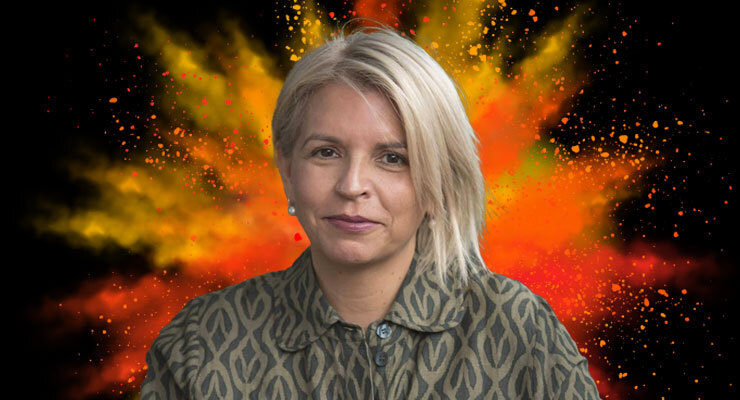
Anger is an emotion we’re rarely told to express. Passionate women and people of colour are often framed as overly outspoken, enraged, shrill or resentful. Their fights are discredited the second they raise their voice.
But regardless of how it’s framed, anger gets results. When directed in the right way, rage can inspire change. It pulls people out of their homes, it causes them to rally outside Parliament, call out bullshit and fight for what they believe in.
This week Crikey spoke with Hannah McGlade, executive officer of National Aboriginal and Torres Strait Islander Legal Services, on what’s got her riled up this week — and when anger has worked in her favour.
Crikey: Have you been called an “angry woman” before?
Hannah McGlade: They like to call me passionate, though I have the sense that I’m considered to be the “angry black woman”. It is a form of racism and stereotyping. Aboriginal women’s courage and commitment and voice are often used against us.
There certainly has been a message to be quiet, to leave the room even. Don’t speak. I’ve experienced the stereotypes because I’ve not been quiet. There’s judgement, racism, the idea that you’re unfit.
When has harnessing this anger achieved results?
When I was a young person out of law school I put the case against Liberal senator Ross Lightfoot who defamed Aboriginal people in the most racist manner. [Lightfoot had called Aboriginal Australians “the most primitive people on Earth”, and was against teaching Indigenous culture in schools because he “abhorred” many aspects of their culture.]
I was told by the Human Rights Commission that I was misguided. So I had to sue the Human Rights Commission and that case took five years and I won. It was the first successful federal win concerning Aboriginal people under Section 18C of the Racial Discrimination Act. I’ve supported many cases since to change laws and highlight Aboriginal injustice, including the mistreatment of Aboriginal prisoners subjected to extensive solitary confinement regimes which are very harmful.
A few years ago I learnt about Jody Gore, who had been locked up for murder for 12 years for defending herself [against violence from her partner]. I was so angry at this judge, this white woman who said “I’m going to make an example of you, I’m sick of this drunken violence in the Kimberly”. So I enlisted a criminal law professor and found a journalist and started a campaign and within four weeks the attorney-general announced that he felt there were such serious concerns with the prosecution that he released her.
I got attacked by my own Aboriginal minister [WA Minister for Aboriginal Affairs Ben Wyatt] who said I was wrong [when criticising the Children and Community Services Bill]. I know how many Aboriginal kids are being removed from mothers, women, and in a discriminatory way, always told they are just no good. So I wrote an open letter with the peak body for Aboriginal and Torres Strait Islander children to oppose the legislation. We’ve got about 50 sign-ons from Amnesty to UNICEF and there’s even a suggestion that an expert UN body [the Expert Mechanism on the Rights of Indigenous Peoples] come at the invitation of the government to help Australia address this issue in a proper way.
What’s an issue that deserves more attention?
There’s a decision out today [regarding the 2014 death-in-custody of Ms Dhu] against Doctor Vafa Naderi, one of five health professionals who treated her, which found the doctor guilty of professional misconduct.
[In 2014, Ms Dhu was taken into custody for unpaid fines after police responded to a report that her partner had violated an apprehended violence order. She was taken to hospital complaining of serious pain caused by an infection due to her partner previously breaking her ribs. Medical staff dismissed her symptoms.]
Following this, guidelines to ensure all health professions have a requirement in relation to cultural safety may become future law in Australia next year which is really important because we know that Aboriginal people are dying from racism in health care.








thanks Hannah, keep fighting the good fight!
Bravo to Brittany for her efforts in finding workable, enforceable and supportable solutions!
https://www.abc.net.au/news/2021-04-30/brittany-higgins-meeting-scott-morrison/100107676.
Less rage, more solutions is a win all-round.